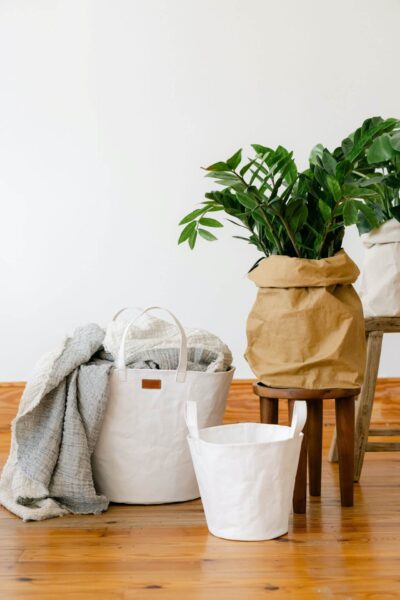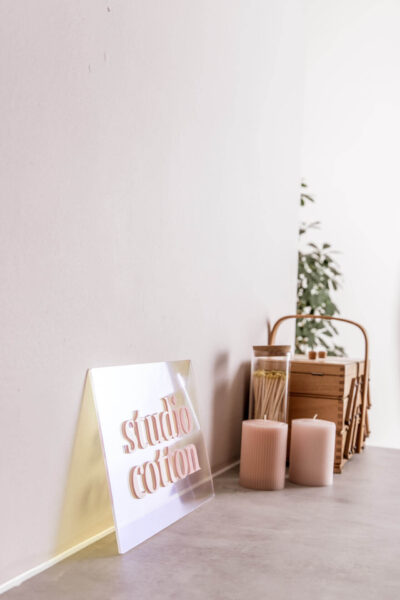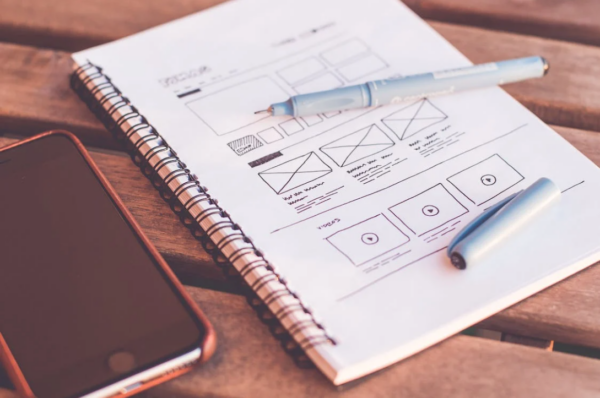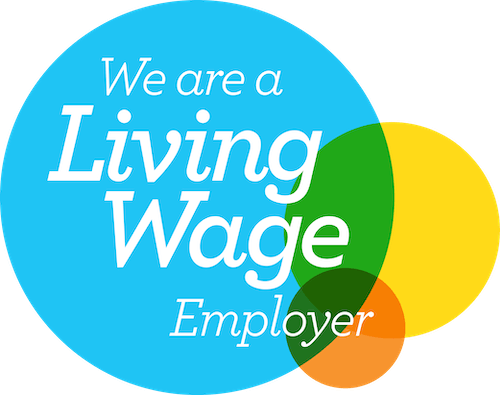I suck at saying no. It’s a lifelong challenge that I’m yet to tackle, but this year – this lovely and fresh and totes joyful 2022 – I’m gonna crack it. Well, I’m going to try, and I’ve got a plan, which is much further than I’ve gotten before.
As the owner of a small website design studio, I need to be super careful about taking on projects to make sure we have the capacity and skills available to execute each one to the best of our abilities.
We also need to prioritise website design projects that will fit our preferred style, subject interest, and talents because let’s be totally truthful; they’re the projects that tend to go the smoothest and help us retain the margins we need.
But remember that I suck at saying no. If I read a lovely enquiry, a delightful email or have a very nice phone call with a small business owner with a challenge that my team and I have the knowledge to solve – well, you can see where this is going.
That’s why one of our 2022 goals for Studio Cotton is to make me less accessible to non-clients, which includes the introduction of the 6 crucial enquiry criteria we review for every website design project.
PS. This blog is a bit of a complementary, updated piece to a similar blog I wrote back in July 2019 – 6 reasons why my marketing agency won’t work with your brand.
Weighting our enquiry criteria assessments
Ok, there’s a little bit of a secret formula behind the scenes that we use to score each enquiry. It’s not perfect, but it’s the best tool we have for objectively assessing each potential website design project.
We also weight each of our enquiry criteria based on how much that quality might impact our ability to deliver a phenomenal website design project.
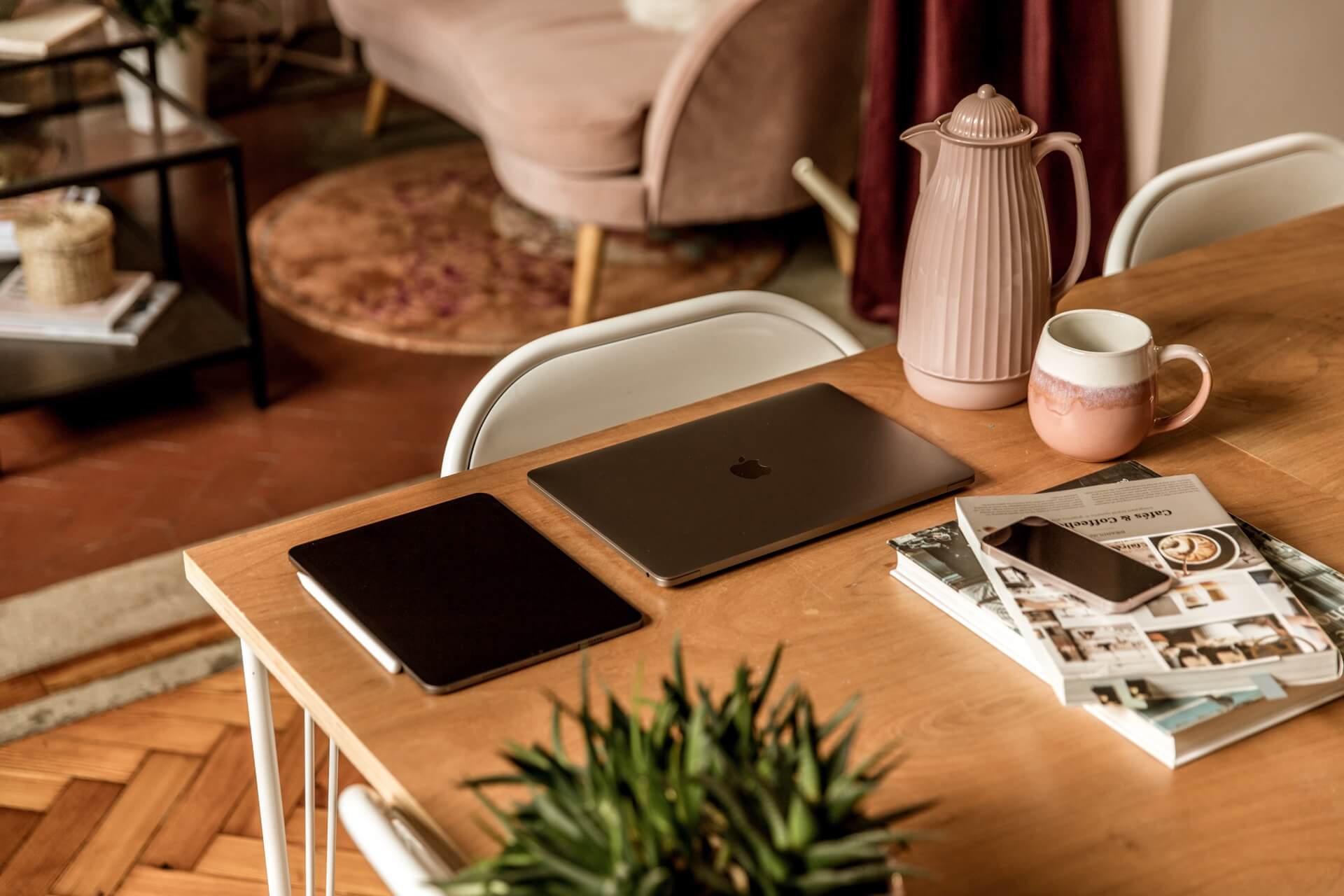
0. Immediate project dealbreakers
It’s not often I start a list on zero, but I knew if I didn’t include these first two points – every service-based business out there would be like “what the fluff Aime, you’re missing something pretty darn obvious”.
The biggest two dealbreakers for any project are budget and timings. That’s why we share our project start prices and rough availability on our website, and ask for deadlines up front in our enquiry form.
We don’t add these to our enquiry criteria assessment because, well, it usually take just a couple of seconds to know when budget and deadlines will prevent a successful website design project.
1. The nicheness of the enquiring brand (medium weight)
Starting with an easy enquiry criterion that’s always been a priority for Studio Cotton, we review the niche of the enquiring brand to get a gist of how easily it’ll fall into our wheelhouse.
As I mentioned earlier, the projects where we have a personal interest, overlapping aesthetic preferences, and relevant experience tend to be the smoothest and most enjoyable website designs to work on.
But actually describing our niche – well that’s a different story. We’ve worked with a pretty wide variety of wonderful small businesses including florists, jewellers, arts & crafts brands, stationers, illustrators and a garden design and landscape company.
I used to try and capture these under the umbrella term “creative small businesses” but it wasn’t very clear at all. So now I like to say we work with brands who make the world a little lovelier, kinder, or more joyful with their products and services.
And to help my team out, I brain dumped a random list of terms that felt proper nichey to me: smart, creative, kind, fun, whimsical, wholesome, inclusive, handmade, peachy, empathetic, crafted, planty, IRL shops, accessible.
Industry and niche dealbreakers
There are a few types of business and website design project that will almost certainly be ‘no’ not nicheness based on our enquiry criteria. Either because they’re super far from our areas of expertise, require adhering to guidelines for which we don’t have a comprehensive understanding, conflict with our business priorities, or they don’t fit with our values.
We review and update our list regularly, but here’s a few examples from our current list of probable and definite enquiry criteria no-nos:
- Direct competitors of Studio Cotton and some of our existing clients
- Solicitors, accountants and financial services
- Supplements, including CBD
- MLM and network selling brands
- Tabacco or vape brands
- Gambling brands
- Products or services that make medical claims
2. Localness or proximity to our home in central Bristol, UK (low weight)
Working with brands in a smaller geographical areas has quite a few business advantages. The first might be obvious: it’s way way easier to meet up for a chat over coffee.
One of the reasons I started Studio Cotton was to have a little more autonomy over my day-to-day activity – and one thing I really ruddy hate is commuting. Working with other Bristolian businesses and our South West, South Wales and Cotswold neighbours keeps me and my team a lil happier.
Another big benefit is the speed at which positive word-of-mouth travels. It’s much easier to make a name for Studio Cotton when our happy clients and lovely fans can bump into each other buying a coffee at Full Court Press or a halloumi wrap at Matina.
Thoughtfully crafted websites for lovely small businesses
Utterly splendid websites designed & built exclusively for small businesses (with all the bells and even more whistles).

3. Stakeholder engagement & relationship aka vibe (high weight)
The most difficult enquiry criterion to assess and probably one of the most important: how well we think we’ll work with a client on a day-to-day basis.
Our website design projects mean a minimum of a 12-month relationship with a lot of collaboration, probably some chasing, and an inevitable sprinkle of pressure. We want to make sure both us and our clients are vibin’ for a frictionless experience, but of course that’s almost impossible predict before we’ve even started the ball rolling.
We assess stakeholder engagement first by reviewing their initial enquiry from our website contact form. We’re not looking for perfect answers by any means, just enough info that shows some interest in our questions and excitement and curiosity around working together on a website design project.
We’ll usually arrange a get-to-know each other call too with one of our team members (but not me, because of the sucking-at-no thing). We’ll ask questions around how the stakeholder likes to work, what they enjoy about their business, and their website experience – and we’ll answer as many of their questions as we can too.
4. Ready-to-go-ness. Preparedness? That’s a better word (medium weight)
In late 2021, we stopped offering branding services at Studio Cotton to focus on the website side of our business. This means that we need to make sure our enquiring businesses have the brand building blocks we need to build a beautiful website – or at least has a plan for sorting these before the potential project start date.
We can certainly advise on what we’re looking for, and if we think an enquiring client’s brand might be due a refresh before investing in their professional website design project. We also have a lil stack of recommended brand and graphic designers.
We also assess the preparedness of the stakeholder or their team for a project. We’re not expecting for someone to know exactly what their final website will look like, what pages they need, or provide alllll of the content up front – we’ll be leading the website design in those areas.
Instead, we prioritise clients who have a clear idea of their business goals and have some understanding of how we can help them achieve those goals with a very wonderful website.
5. Team excitement (medium weight)
We love working on projects that make us happy – because we’re a little bit selfish like that. For every enquiry that we receive, we ask 3 members of the team who would be involved “On a scale of 1-5, how excited would you be to build a website for [business name], a [short description of business]”.
It’s totally subjective, but makes sure everyone at Studio Cotton has an input on the types of project we take on.
6. Selfish value for Studio Cotton (low weight)
This enquiry criterion is a bit of a cherry-on-top assessment – it’s the potential return or reciprocal value to our business, Studio Cotton. We review factors like how nicely a project might look in our portfolio, if it adds another dimension to our client roster, if it has the potential to open future doors – and yeah, if the client has like a fluff-tonne of social media followers.
And that’s it. Like I said, it’s not perfect, but it’s the best tool we have to help us take on the best-fitting website design projects for our business. Turning down a project is always, without fail, a proper stinky feeling – but it’s an unfortunately necessity when running a small business with a limited capacity.
Still, I hope you found this peak behind the scenes of our website design studio and the 6 crucial enquiry criteria we review before saying yes to a website design enquiry.






